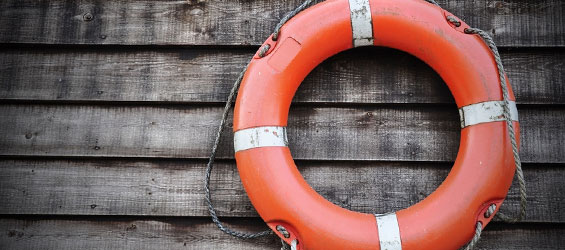

When it comes to digital marketing, receiving reports on your organic search engine rankings is important in order to stay on top of any potential problems. While fluctuations in organic rank happen hourly, a significant drop across numerous keywords for a few days could indicate that your site has been penalized. Luckily, there are some simple actions that can be taken to recover from these issues. At Liqui-Site, we know a thing or two about SEO recovery, so here are our tips on treating a drop in search engine rankings:
1. Internal Linking
Linking to old posts within new posts is common practice among bloggers and digital marketers. This is a great way to drive traffic back to older content on your site if that content relates to what you are currently posting about. Something you may not think of is to go back and edit your old posts to include links to newer content. This will get your newer post indexed and ranking much quicker. Improve user experience by helping visitors find the freshest content. It’s also important to consider linking from an older page on your site that has authority and consistently decent traffic. Using resources like Google Analytics or Ahrefs.com can help you figure out which of your pages are most authoritative.
Another thing to remember is the use of contextual keywords when linking your pages. Instead of using “read more about this here,” you should use “Penguin 3.0 means a change in Google’s SEO algorithm.” Long-tail keywords are the way to go. This will minimize the chances of over-optimization. (i.e. Instead of “SEO,” try using “SEO tips for ecommerce businesses” as a keyword.)
2. Update Old Content
Aside from linking to new content on your old posts, there are other updates you can make to the content already offered on your site. Using Google’s Webmaster Tools, you can find specific keywords that you rank for, but do not actually mention in your content. You should then add these keywords into your old posts. This will boost the rankings of your overall site and refresh your old content.
3. Get Social
Engagement on your social media channels has a significant impact on SEO. Getting your links shared on social not only spreads the word about your content; it also boosts your SEO. Getting shares on social media is much easier than you think. Adding content sharing buttons to your pages is a great way to encourage your readers to share your content on their social media accounts. Make sure these share buttons are visible and easy to use. Having a share button on the top and bottom of the page could increase the chances of someone actually clicking it and posting your link on social media. It would be wise to consider a floating share button as well, as you never know when a reader will decide they want to share your content.
Don’t be afraid to ask for shares on social media. At the end of your post and on your own social media accounts, encourage users to share your links to their network. Building relationships with influencers is something that will largely benefit you in the long run and help you to become an influencer as well. Make sure you do this carefully, as nobody likes to feel like they are being used. Take the time to personally email social media influencers on a regular basis and show them why this relationship could be mutually beneficial. What do you have to offer?
4. Link Building
Link building continues to prove itself to be the best way to grow traffic and revenue when it comes to SEO. The best way to go about this is by doing it organically. Buying links can get expensive, can result in penalization if those links are low quality or irrelevant, and it’s so much easier to just ask. Remember that when trying to boost search engine rankings, linking to the page that dropped in rankings over and over again is not the best strategy. Instead, link to that specific page a few times, but you should mainly focus on increasing your site’s overall authority by using other links from your site as well.
Who exactly should you ask to get links from? Search for resources that are relevant to your site. Choose the top 300 relevant results with a Domain Authority of 30 or higher. Send each of these sources a personalized email asking them to link to your site if they find the content to be valuable to their audience. This can get you 10-30 free links, depending on the quality of the email and content. Also make sure that you check whether or not the site that you get a link from is earning organic search engine traffic. You can use SEMrush.com to help you with that.
Researching your competitors’ backlinks to see where they are getting their natural links from is a great way to find resources to ask for links. See where they get their traffic from and figure out if that source is the right fit for you.
When trying to repair a drop in search engine rankings, being patient is key. These fixes are extremely effective, but they won’t bring your rankings back overnight. Start slow, make small changes and see what works best for you. The improvements will be gradual and are well worth the effort that you put into it.
